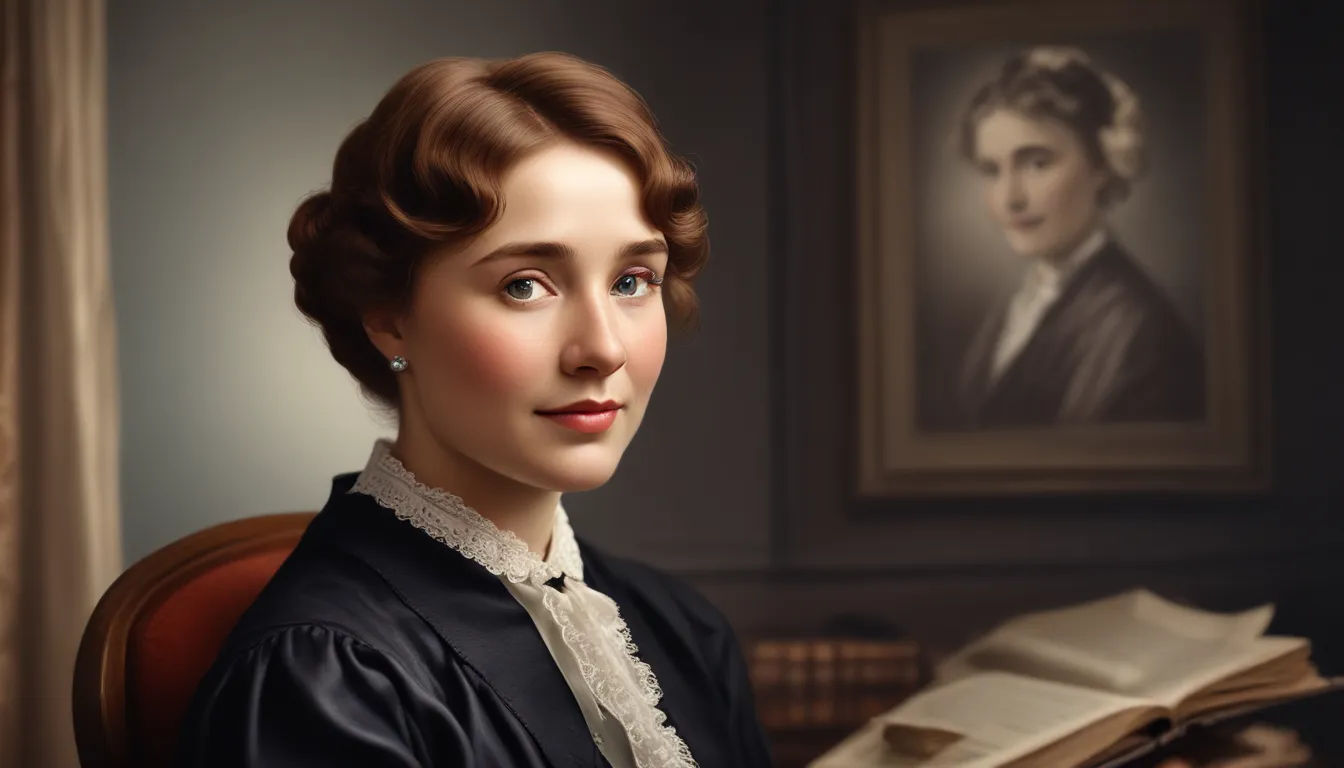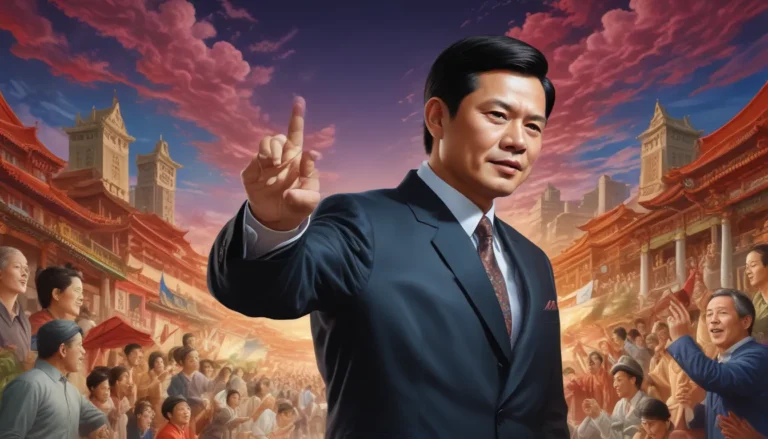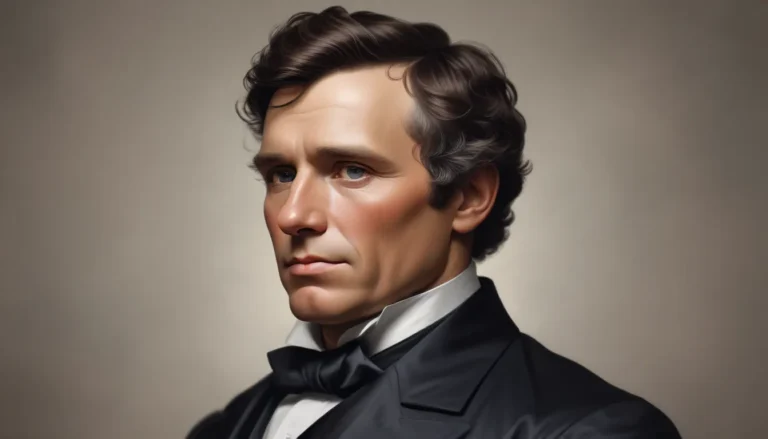The images in our articles may not match the content exactly. They are used to grab your attention, not to show the exact details in the text. The images complement the text but do not replace it.
Are you curious about the remarkable journey of Helen Keller? Beyond being a historical figure, Helen Keller was a symbol of hope and resilience. Despite becoming deaf and blind at a young age, she defied all odds to become a renowned author, political activist, and lecturer. Let’s delve into the world of Helen Keller and uncover 23 captivating facts that illuminate her extraordinary life and indomitable spirit.
Who Was Helen Keller?
Helen Keller, born on June 27, 1880, in Tuscumbia, Alabama, faced immense challenges early in life when she lost her sight and hearing at just 19 months old due to an illness. With the guidance of her devoted teacher, Anne Sullivan, Keller shattered the confines of her disabilities. She went on to achieve remarkable milestones, such as becoming the first deaf-blind individual to earn a Bachelor of Arts degree. Keller devoted her life to advocating for people with disabilities, women’s suffrage, and various social causes, leaving a lasting impact on society.
Early Life and Education
- Following a severe illness in her early years, Helen Keller lost her sight and hearing, described by doctors as “an acute congestion of the stomach and the brain.”
- In 1887, Anne Sullivan, who was visually impaired herself, took on the role of Keller’s instructor. Sullivan’s innovative teaching methods sparked Keller’s curiosity and paved the way for her exceptional educational accomplishments.
- Keller’s educational journey took her through institutions like the Perkins Institute for the Blind, Wright-Humason School for the Deaf, and Radcliffe College, where she graduated with honors in 1904.
Helen Keller’s Achievements
- Keller’s prolific literary career included writing 12 published books and numerous articles on a wide range of topics, from socialism to her experiences living without sight and hearing.
- A staunch advocate for civil rights, Keller co-founded the American Civil Liberties Union (ACLU) in 1920, highlighting her unwavering commitment to justice and freedom.
- Joining the American Foundation for the Blind (AFB) in 1924, Keller dedicated over 40 years to advocacy work that improved the lives of visually impaired individuals worldwide.
Global Influence and Recognition
- Helen Keller’s advocacy efforts transcended borders as she traveled to over 40 countries, spreading her message of hope and showcasing the capabilities of individuals with disabilities.
- Her impactful work garnered global recognition, including prestigious accolades like the Presidential Medal of Freedom in 1964 and induction into the National Women’s Hall of Fame in 1965.
- Meeting every U.S. President from Grover Cleveland to Lyndon B. Johnson, Keller’s influence and respect from prominent figures underscored the magnitude of her legacy.
Personal Life and Legacy
- Despite her disabilities, Keller honed her speaking abilities and effectively communicated her life experiences through speeches and lectures, advocating for individuals with disabilities.
- Keller’s story inspired adaptations into films, television movies, and plays, notably “The Miracle Worker,” which delves into her early life and relationship with Anne Sullivan.
- Although she passed away in 1968, Keller’s legacy endures through organizations like Helen Keller International, which continues to champion vision health and nutrition.
Helen Keller’s Impact on Education and Advocacy
- Keller’s legacy reverberates in educational advancements for the deaf and blind, fostering improved teaching methodologies and enhanced accessibility.
- Instrumental in founding Helen Keller International in 1915, Keller’s efforts focused on preventing blindness and combating malnutrition, leaving a lasting imprint on public health initiatives.
- Keller’s life serves as a testament to resilience and determination, illustrating that with the right support and opportunities, individuals with disabilities can achieve extraordinary feats.
Unforgettable Quotes by Helen Keller
- “The best and most beautiful things in the world cannot be seen or even touched – they must be felt with the heart.” This quote encapsulates Keller’s optimistic perspective on life amidst adversity.
- “Alone we can do so little; together we can do so much.” Keller emphasized the power of collaboration and support in overcoming challenges.
- “Life is either a daring adventure or nothing at all.” Keller’s embrace of life as an adventure resonates with her fearless pursuit of learning, growth, and advocacy.
Helen Keller’s Influence on Modern Society
- Keller’s narrative continues to inspire individuals with disabilities to pursue their aspirations and advocate for their rights, shaping a more inclusive society.
- Her groundbreaking work laid the groundwork for significant advancements in disability rights, culminating in legislative milestones like the Americans with Disabilities Act (ADA).
- Educational institutions worldwide incorporate Keller’s story to empower students, showcasing her as a beacon of perseverance and achievement against all odds.
Remembering Helen Keller
- Annual commemorations like Helen Keller Day on June 27 celebrate her contributions, underscoring the enduring impact of one individual on society.
- Museums, historical sites, and educational establishments preserve Keller’s legacy, ensuring that future generations can glean insights from her life and accomplishments.
A Glimpse into Helen Keller’s Legacy
Helen Keller’s life exemplifies the tenacity of the human spirit and the boundless potential of perseverance. Despite grappling with deafness and blindness, Keller emerged as a champion for the disabled, an accomplished author, and an unyielding advocate for justice. Her partnership with Anne Sullivan showcased the transformative power of support and education in unlocking one’s capabilities. Keller’s legacy imparts a profound lesson that obstacles can be surmounted with determination and guidance. Her story continues to inspire individuals worldwide, embodying the transformative journey from challenges to advocacy and growth. Let’s embrace her indomitable spirit in our lives, viewing challenges as catalysts for positive change.
Frequently Asked Questions
Q: Who was Helen Keller?
A: Helen Keller was an exceptional individual who defied the limitations of being blind and deaf to become a renowned writer, speaker, and advocate for people with disabilities. Born on June 27, 1880, in Tuscumbia, Alabama, she lost her sight and hearing at a very young age due to illness. With the guidance of her teacher, Anne Sullivan, Keller learned to communicate and eventually graduated from college, becoming the first deaf-blind person to earn a Bachelor of Arts degree.
Q: How did Helen Keller communicate?
A: Keller employed various communication methods, including tactile sign language, Braille, and speech. Anne Sullivan, her lifelong mentor and companion, played a pivotal role in this process. Sullivan introduced Keller to the manual alphabet, a form of sign language involving spelling letters on the palm of the hand. Over time, Keller also learned to speak and lip-read, enhancing her ability to interact with others.
Q: What did Helen Keller achieve in her lifetime?
A: Beyond her personal educational milestones, Keller authored 12 books and numerous articles advocating for the rights of individuals with disabilities. She co-founded the American Civil Liberties Union (ACLU) and played a vital role in establishing the American Foundation for the Blind. Through her activism and global lectures, Keller raised awareness about the capabilities of individuals with disabilities and advocated for their rights and inclusion in society.
Q: Was Helen Keller involved in any political movements?
A: Yes, Keller actively participated in various political and social movements. She supported women’s suffrage, aligned with the Socialist Party, and advocated for labor rights. Keller’s political engagement and activism for social justice often sparked controversy but underscored her unwavering commitment to equality and human rights.
Q: How did Helen Keller learn to read and write?
A: Keller acquired literacy skills through Braille and raised print. Anne Sullivan introduced her to Braille, a raised-dot system representing letters that can be read by touch. Mastering this system enabled Keller to engage with books and express her thoughts independently. Additionally, she utilized a specially adapted typewriter to compose letters, essays, and books.
Q: What impact did Helen Keller have on the world?
A: Helen Keller’s influence transcends boundaries, reshaping perceptions of what individuals with disabilities can achieve and spearheading advancements in their education and rights. Her enduring legacy continues to inspire millions globally, serving as a beacon of determination, education, and advocacy in overcoming seemingly insurmountable obstacles.
Q: Are there any awards or honors named after Helen Keller?
A: Numerous awards and honors bear Helen Keller’s name, recognizing achievements in diverse fields linked to her life’s work. The Helen Keller Achievement Awards, presented by the American Foundation for the Blind, commend individuals and organizations for exceptional contributions towards enhancing the lives of visually impaired individuals. Schools, hospitals, and foundations worldwide pay tribute to Keller, acknowledging her enduring impact and societal contributions.
Closing Note
Our dedication to delivering reliable and captivating content forms the cornerstone of our mission. Each fact shared on our platform emanates from real users like you, enriching our collection with a wealth of diverse insights and knowledge. Upholding the highest standards of accuracy and authenticity, our devoted editors meticulously review each submission to ensure that the facts we present are not only captivating but also credible. Trust in our unwavering commitment to quality and authenticity as you explore, learn, and engage with us.






